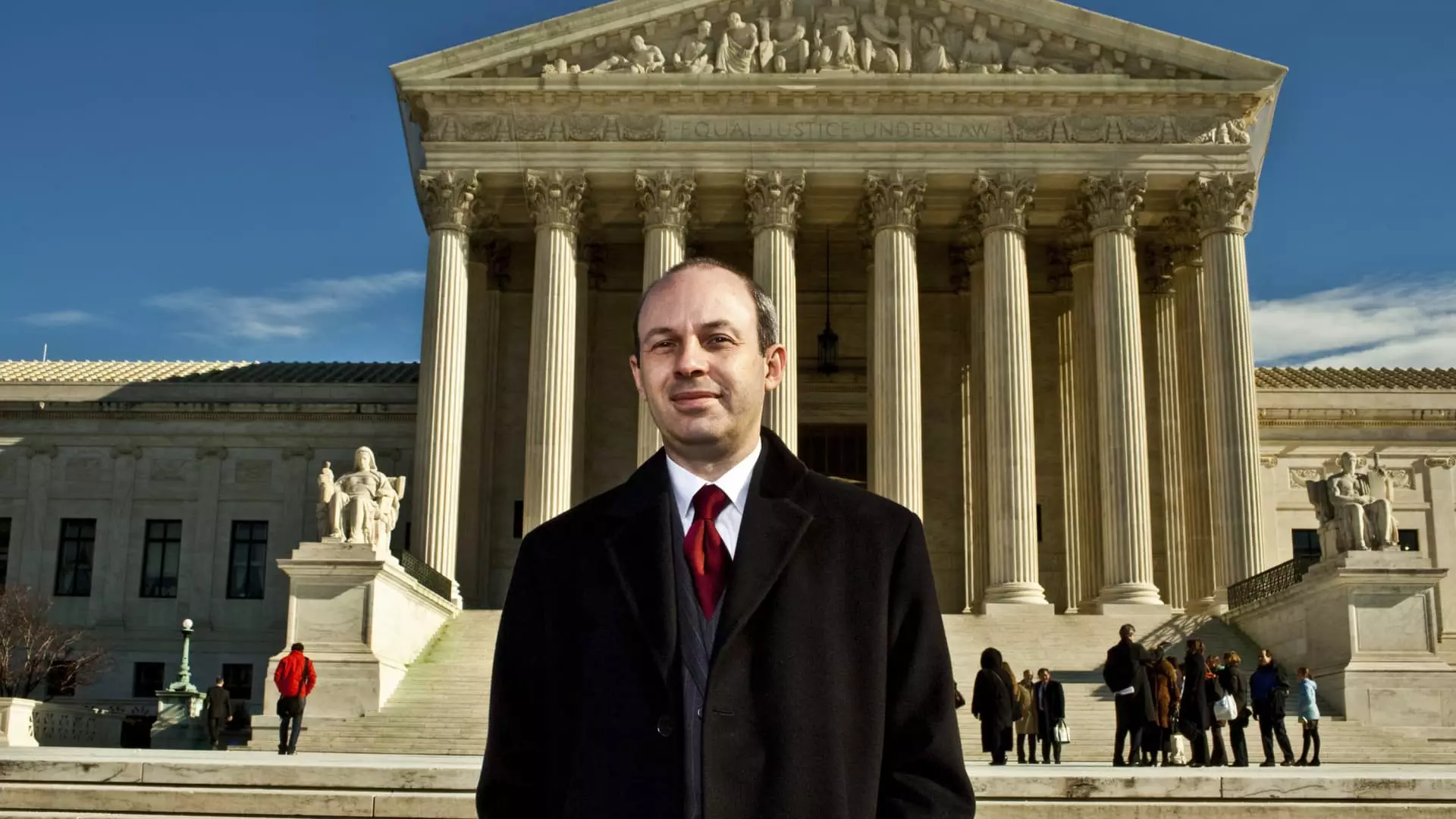The recent arrest of Tom Goldstein, a noted attorney renowned for his frequent appearances before the Supreme Court, has sent shockwaves through both legal and financial communities. Faced with criminal tax evasion charges, Goldstein’s situation has become increasingly precarious, particularly after prosecutors classified him as a significant flight risk. This article delves into the details surrounding Goldstein’s case, the legal implications of his actions, and the broader repercussions within the judicial system.
Flight Risk and Bail Revocation
A federal judge’s decision to arrest Goldstein without bail stems from grave concerns about his potential to flee the jurisdiction. Such a determination is not made lightly, particularly for someone of Goldstein’s stature, who has built a reputable career over decades. Prosecutors pointed to his recent failure to disclose substantial cryptocurrency holdings—over $8 million—which he allegedly controlled, casting doubt on his commitment to abide by the legal parameters set around his release.
During court proceedings, delineation of these financial maneuvers suggested a calculated effort to conceal assets from authorities. The scrutiny intensified as evidence emerged indicating that Goldstein transferred more than $6 million in cryptocurrency shortly after his indictment, a direct violation of judicial orders that restricted his financial activities. The implications of these actions accentuate the difficulty in monitoring high-profile defendants who may possess the resources to obfuscate their financial realities.
The seriousness of Goldstein’s allegations extends beyond mere failure to report income. Prosecutors have accused him of offering value—namely, cryptocurrency—to a potential witness familiar with his financial dealings. This allegation raises significant questions about witness tampering and complicity in an ongoing investigation, effectively painting a portrait of a defendant who may resort to unethical measures to evade accountability.
Denials from Goldstein that he controlled these cryptocurrency wallets reflect a troubling disconnect between his public persona as a competent legal professional and the gravity of the accusations against him. During his bail hearing, he vehemently denied ownership, asserting, “These are not my accounts.” However, Federal Magistrate Judge Timothy Sullivan’s subsequent ruling, which pointed to “clear and convincing evidence” of violations on Goldstein’s part, underscores the precariousness of his defense and the potential for grave legal repercussions.
At the heart of Goldstein’s legal troubles lies his alleged failure to report significant poker winnings as income. Accused of willfully neglecting to pay upward of $5.3 million in taxes, the case is emblematic of the complex financial behavior often associated with high-stakes gambling. The intertwining of his professional obligations as a lawyer with risky personal gambling habits not only complicates his legal standing but also invites scrutiny of ethical considerations regarding transparency and accountability within the legal profession.
Goldstein’s financial transactions provide a lens into the broader implications of how legal professionals manage their personal finances. The entanglement of gambling, law practice expenses, and the ensuing tax obligations serve as a cautionary tale of the potential pitfalls that can ensnare even the most successful individuals in their respective fields.
Goldstein’s situation presents significant ramifications, not only for his career but also for the legal community at large. Should he be convicted of the charges, it could lead to severe penalties, including extensive fines and imprisonment, tarnishing his record as one of the leading lawyers in America.
Moreover, this case may prompt a reevaluation of the relationship between high-profile individuals and their financial disclosures, especially those in positions of trust and leadership within the law. The repercussions extend beyond Goldstein as the legal community grapples with the challenges of ensuring integrity and transparency among its ranks.
Tom Goldstein’s unfolding legal saga is a compelling case study of how personal actions can dramatically impact professional reputations and the justice system. As the court proceedings continue, the judicial system will be tested not only in terms of handling a high-profile defendant but also in addressing the broader issues of financial ethics and accountability that resonate throughout the legal landscape.


Leave a Reply